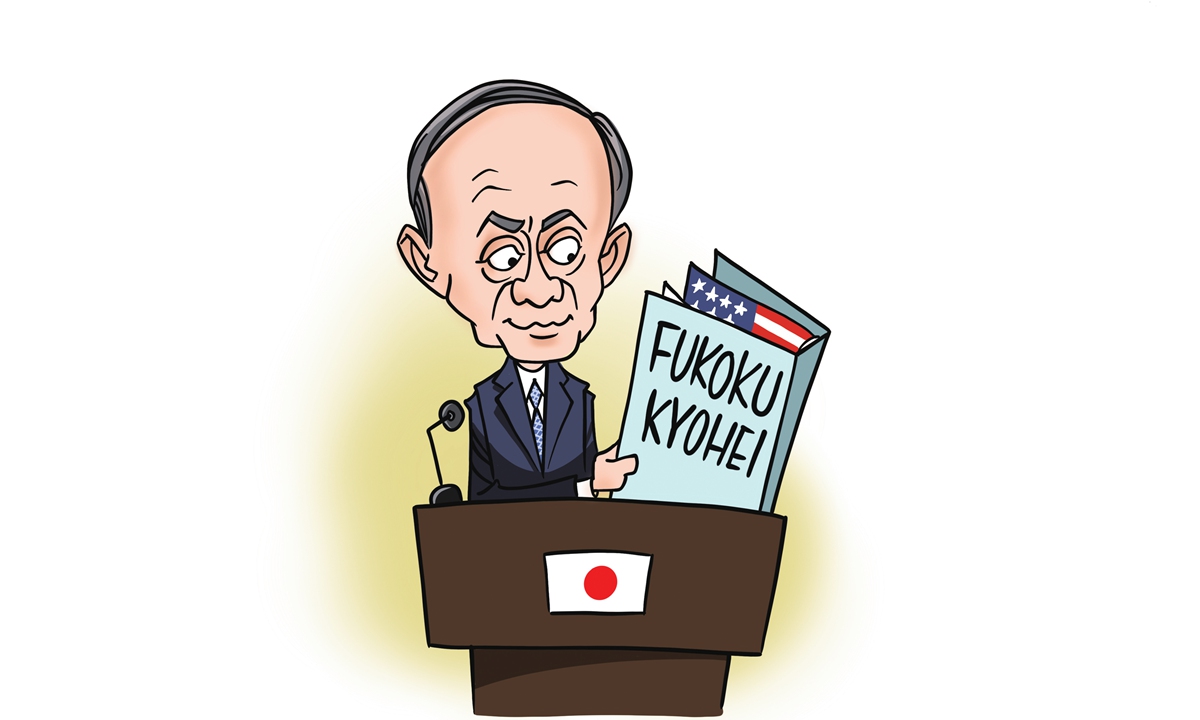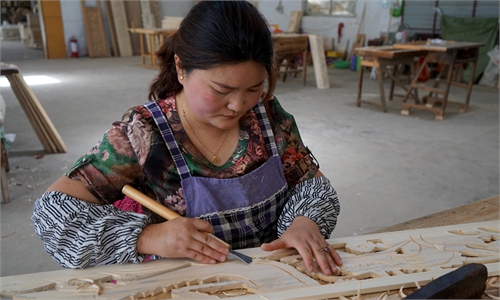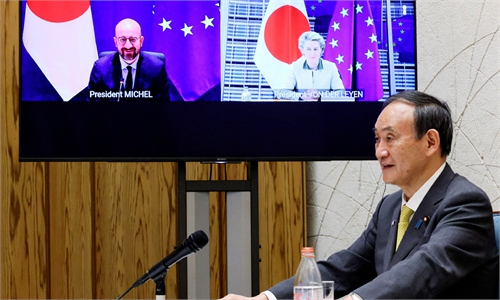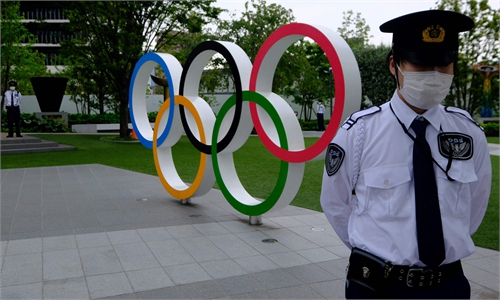Tokyo’s new ‘Fukoku kyohei’ strategy shows its allegiance to Washington’s agenda

Illustration: Liu Rui/GT
Recently, Japan's Liberal Democratic Party (LDP) presented a draft of the framework for a new growth strategy. Unlike the previous ones that focused on stimulating the economy and revitalizing industries, this new strategy explicitly proposes that economic policies and business activities should be directly linked to national security.Some Japanese opinions called it the Reiwa era's "Fukoku kyohei" strategy. This policy, also known as the strategy of "enriching the country and strengthening the military," led Japan to modernize during the Meiji Restoration.
So, what are the prospects and practical implications of this new growth strategy?
First, the new strategy highlights the sense of crisis and anxiety in Japan's political circles about the country's future. US President Joe Biden is attempting to push forward international coordination and cooperation with American allies to regain its global and geopolitical influence and at the same time contain China.
Some Japanese politicians have realized that Japan's existing economic position cannot cope with the increasingly complex international geopolitical game. Its existing economic model cannot handle ever-changing diplomatic relations either. They also feel a sense of crisis around the country's research and development of the COVID-19 vaccines, high-end industrial technology, and economic development potential. Moreover, they are increasingly anxious about Japan's role in the great power game between China and the US.
The current situation has made these Japanese politicians believe that the country needs a new strategy to replace the old one that prioritizes economics and emphasizes less on security. So they actively promote economic growth as an "escort vessel" for national security. Thus, the new growth strategy is a major strategic adjustment that merges economic growth with security games.
Second, this strategy has developed a new awareness in the Japanese government and public that the economy serves geopolitical security. Some Japanese political elites believe that Japan often treated economics and security separately for a long time in the past. As a result, Japan was constantly forced to make sacrifices for its economy. With this new strategy, Japan is beginning to use its economic strength to support its diplomacy and security.
The core of the new growth strategy clearly aims to ensure economic security by supporting domestic production of advanced semiconductors and batteries as it seeks to buffer against chip shortages. By funding the development of manufacturing technologies, the government hopes to attract overseas manufacturers from countries and regions such as the US and the island of Taiwan.
The new growth strategy also released a signal that economic growth and defense costs are connected. The plan focuses on Japan's military power: defense costs should not necessarily be confined by its proportion to GDP, but instead, it should increase as a security strategy and important manifestation of strengthening the strategic framework of Quad mechanisms as well as a robust US-Japan alliance.
Last, the new growth strategy targets geopolitical competitors, such as China and Russia. Some urge that economic policies with security considerations toward China should be formulated as soon as possible.
It is undoubtedly the right of the LDP, and even the Japanese government, to introduce a growth strategy. But in essence, the new growth strategy is an open endorsement of Japan's choice to take sides with the US. If Japan continues to follow this strategy, it will lose the initiative in economic diplomacy and the flexible advantages in foreign cooperation that it has developed over the years. This will also cause substantial losses and additional investment confusion to the Japanese economic community. It will further damage the political mutual trust between China and Japan and the public opinion of the two countries.
The trend of Japan's eagerness to tie its economy to national security has raised concerns about whether it will repeat its mistakes in history. For Japan, sticking to peaceful development and win-win cooperation is without doubt the best solution. This means working with China and other countries to promote regional integration mechanisms such as the Regional Comprehensive Economic Partnership and the China-Japan-South Korea Free Trade Agreement. These are feasible choices that serve its national policy and long-term interests.
The author is director of the Institute of Northeast Asian Studies at Heilongjiang Provincial Academy of Social Sciences. opinion@globaltimes.com.cn



